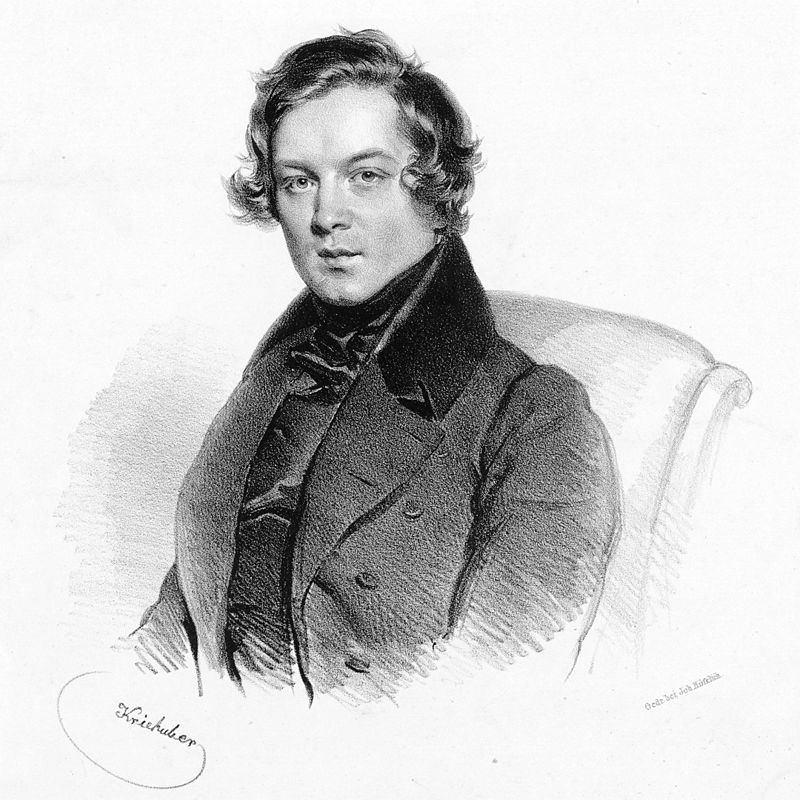8 June 1810 – 29 July 1856

Robert Schumann, a romantic pianist, composer, music critic and the founder of the New Journal of Music (Neue Zeitschrift für Musik– a journail that is still published today) was born on this day in the German city of Zwickau. He is considered one of the most important representatives of romanticism. Unfortunately, during one experiment with a finger strengthening mechanism on his right hand, he suffered permanent injuries that prevented him from continuing his pianist career, but he focused his work on composing. His rich opus is filled with piano and church works, which have been preserved thanks to his great support, his wife Clara Schumann. In 1843, Felix Mendelssohn hired him as a piano and composition teacher at the Leipzig Conservatory, and Schumann later moved with his family to Düsseldorf, where he worked as the city’s music director from 1850 to 1853. There, Schumann meets Johannes Brahms, notices his musical talent and skills, after which their acquaintance grows into a long-term friendship. In his last years of life, he had mental problems, and he spent that time in a mental hospital, where he died in 1856. From his compositional oeuvre works for piano stand out: Album for the young, which contains 43 pieces for piano – the most famous is The Wild Horseman, then Scenes from Childhood with 13 piano pieces, the most famous of which is the seventh Dreaming, and there are Flower Pieces and Album Leaves. Also, pianists like to perform the Concerto for piano and orchestra in A minor, the cycle of solo songs of the A Poet’s Love is well known, as well as Symphony no. 4. During the years he spent in Düsseldorf, he wrote the Cello Concerto, the Violin Concerto, Mass No. 147 and Requiem.
Robert Schumann: Kinderszenen, Op. 15, No. 1 “Von fremden Ländern und Menschen”
This file is licensed under the Creative Commons Attribution-Share Alike 2.5 Generic, 2.0 Generic and 1.0 Generic license.
Author: Katarina Georgijević
Translation: Jelena Čolović
